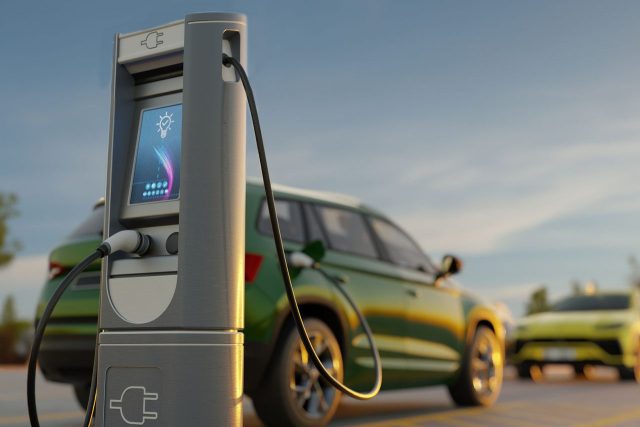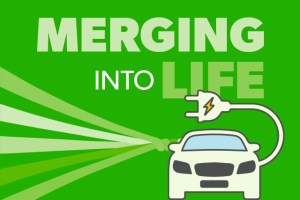The results of a recent AAA Northeast survey about electric vehicles shows many consumers throughout the region can’t shake their EV anxiety. Concerns about charging infrastructure, range and expense continue to fuel reluctance to commit to all-electric vehicles, and almost one-quarter of respondents wouldn’t be comfortable driving them.
To Go Electric, or Not to Go Electric?
It comes as no surprise that EVs can be a bit polarizing. Consumers reported either wanting an EV in the next decade or not at all.
More than half of survey respondents said they never plan to buy a fully electric vehicle, while 37% either already own one or predict they’ll buy one by 2035.
EV Anxiety
For consumers with no desire to make the switch from gas, it is often EV anxiety that keeps them from being swayed.
Fear of Driving an EV
Perhaps the most surprising revelation from the survey, which drew more than 1,700 responses, is that 24% of non-EV owners would not feel confident at all in their ability to operate an EV on the fly, and only 8% were slightly confident in the same situation. However, people who know EV owners were generally more confident (48% completely confident) than people who don’t (28%).
“It’s understandable that people might not feel comfortable hopping in an electric car and taking it for a spin if their whole driving career has been in gas-powered vehicles,” said Alec Slatky, managing director of public and government affairs for AAA Northeast. “It’s worth seeing if you can take a test drive at a dealership or at an EV community event to get a taste of what it would be like to have one.”
A Different Feel
Operational differences between EVs and gas-powered cars can account for some hesitation around EV driving.
EVs are equipped with a technology known as regenerative braking, a system that uses the kinetic energy of the car to recharge the battery and helps slow down the vehicle.
“This can take some getting used to as the vehicle doesn’t coast, but rather slows down when you take your foot off the accelerator,” said Brian Butterworth, senior manager for driver training for AAA Northeast. “Many EVs also offer one-pedal driving, going so far as to bring the vehicle to a complete stop – and hold it – without ever hitting the brake.”
Another big difference is acceleration. EV motors provide torque instantly, making acceleration feel quick at low speeds.
For those who are nervous about adjusting to these features, Butterworth suggested taking time to evaluate an EV and seek guidance. “Don’t approach an EV with the ‘get in and drive mentality,’” he said, encouraging potential EV owners to familiarize themselves with a car beforehand by watching manufacturer videos.
“Once you do start driving, start off slow – either in a parking lot or on side roads,” Butterworth said. “As you get more comfortable, try different settings to see how they impact the driving experience. EVs often have different drive modes, and you can often adjust the level of regenerative braking. Find the settings that work for you and in different scenarios.”

Public Charging: Locations, Charging Times and Safety
Survey respondents cited several of the same concerns that the public continues to express about EVs, including the lack of charging infrastructure and the amount of time needed to charge.
The majority of survey respondents who currently own an EV say that it takes at least 30 minutes for a car to charge at a public charging station. But consumers don’t want public charging to take more than filling up at the gas station. Even among those who expect to buy an EV in the future, nearly two thirds would prefer to spend the same amount of time charging as pumping gas or are willing to wait just 10 minutes longer.
While most respondents said they would prefer to charge at home, safety and convenience were among the priorities for public charging stations. Hotels and highway rest stops were cited as desirable charging locations. At the same time, people are reluctant to stop at charging stations that are not well lit or don’t feel safe.
“Public charging needs to approximate the convenience of gas stations if electric vehicle boosters want to convince interested consumers to take the plunge – to say nothing of the passionate holdouts,” said Slatky. “Though EV owners tend to do most of their charging at home if they can, buyers want to feel assured that their car can manage road trips just as easily as daily routines.”
The EV Push is On, But Will People Respond?
President Joe Biden signed an executive order in December 2021 for the U.S. government to end the purchases of gas-powered vehicles by 2035, signaling the government’s eagerness to expand EV use, although the public still has not completely embraced the shift.
But the push continues. Nine states are expected to prohibit the sales of new gasoline cars by 2035. People still will be allowed to purchase used gasoline-powered cars or buy new ones in other states.
“Auto manufacturers hoping to boost EV sales over the next decade have reason for optimism,” noted Slatky. “But industry stakeholders seeking a complete long-term transition to electric face serious obstacles – especially from consumers who have no desire to make the switch.”
Do you have EV anxiety? Tell us in the comments.
8 Thoughts on “AAA Survey Reveals EV Anxiety”
Leave A Comment
Comments are subject to moderation and may or may not be published at the editor’s discretion. Only comments that are relevant to the article and add value to the Your AAA community will be considered. Comments may be edited for clarity and length.














Battery Powered Vehicles…
1. Charging_ I will hesitate like over half of the drivers that I know as is not compatible with the way we generally fuel our petrol vehicles. Many of us like to hand the attendant our available cash and use pump# x. Presently there does not appear to be any chargers that honor the currency of the United States (AKA Cash). I hope the future will allow me to use a battery powered pick up truck that will let me buy my morning coffee and sandwich, then hand over some currency and be able to say “Put the rest on Charger #x”
2. The vehicle_ Finding one that does not have a touch screen for the controls! These render a vehicle unsafe for operation on the road for many of us. The only button on the steering wheel should be for the horn.(PERIOD). All controls must be tactile so that one can concentrate their eyes on the road and still use the controls.
3. For all vehicles… Headroom. I have been unable to sit in the driver’s seat of many petrol vehicles and any battery vehicles without my head firmly pressed into the roof – hence the reason I drive a pick up truck.
The concept of battery vehicles is good – it is the execution that presently is a major fail.
I am not planning to buy an ev in the forseeable future. The technology needs to improve. They have a limited distance range, not enough charging stations, the batteries cause fires, and there is a motion sickness issue.
Wow, those are some baseless and weird claims in the previous comments. You really should moderate misinformation of that level, AAA.
Anyway: I’ve been an EV-only driver for 8 years now. I have loved the car–it’s so quiet, so clean, so peppy, so zero-maintenance. But the range is still giving me agita (it’s not the radiation, you nutcase). And people say they charge at home and at the grocery store–and that’s fine in urban areas. The problem isn’t those places.
It’s trying to get to your niece’s wedding in the next state, or the convention for your hobby group that’s in some out-of-the-way location because it’s a low budget thing. It’s the special events, that make your life fun and socializing with people–that’s the barrier.
I’m about to buy my second EV, one with better range. But even I’m going to lease it–despite being opposed to leasing in general–because the arena is too unstable right now to count on the charging network build-out (thanks to that other nutcase) and the political environment.
I’m open to the idea of an EV, and I’ve done some reading and attended a very helpful EV event last spring where current owners brought their cars for people to see and sit in and were there to answer questions in a non-sales environment, but I still have two basic, practical concerns: price and charging.
The price of an EV is still generally higher than what I want to pay for a car and what many can comfortably afford, especially with the changes to the tax credits. I live in one of the nine states with the 2035 requirement, and I have been hopeful that prices will level out a bit as we get closer to that time, but I’m concerned that might get tougher to achieve with momentum slowing.
And regarding charging, I live in a small city–an urban environment–and even though there are chargers in the area, realistically, the time and convenience is a challenge. For many of us in old, densely populated cities in the NE, we don’t have driveways or parking and will never have the option of charging at home–we park on the street wherever we can find a spot. While I understand that change involves building and adopting new habits, and I’d be prepared to add in charging breaks when planning a trip, that’s a high hill to climb on a more routine basis, especially in winter when it’s harder to park to begin with. The only people I know personally in my general area that have EVs right now also have a place of their own to charge it and use public stations as a supplement.
Infrastructure is not the only concern, but it is one of many.
-Power outages reveal the extreme vulnerability that people who are reliant upon technology such as this face; all it takes is being stuck without electricity for a couple of days to drive that fact home….literally.
-The electromagnetic radiation emitted by these vehicles causes damage to the body at the mitochondrial level, and being bathed in a steady stream of radiation is something that more and more people are actively saying “no thanks”. Without health, we have nothing, and EMF is the epitome of “dirty”, as well as devastating.
-People are wising up to the way that the raw materials for EVs are harvested and produced, and to the deception that the industry is attempting to perpetuate when they claim that this technology is “sustainable and environmentally friendly”. It is propaganda.
-The cost of replacing a lithium battery could realistically exceed the cost of the vehicle itself. Another rude awakening for people who have made these purchases without doing actual research.
-A.I. is inferior, it lacks human ingenuity, and is not responsive to anything that it is not programmed to recognize. There have been and continue to many accidents with these vehicles.
-People have been noticing for several years now that their electric bills have fees tacked on for the cost of EV charging stations….which they in most cases do not use, nor did they request to be stuck paying for. This is clearly collusion between government and industry to foist yet another agenda onto the backs of the public in order for lobbyists to make massive amounts of money.
Pretending that people are too superficial and stupid to realize all these concerns and minimizing the universe that affects the topic of EV is disingenuous and reflects one-dimensional reporting.
Bizarre number of falsehoods, exaggerations and conspiracy theories in this piece.
Thank you. Many do not believe that EMF does damage the body and many people have problems with EMF. I am trying to reduce my electromagnetic exposure. That includes not sitting in an electric vehicle.
Electric cars still have many drawbacks as mentioned in the article. I currently don’t plan on ever buying one, but could change if the existing major problems are solved.
One important issue that is not mentioned is motion sickness. Electric cars, because of the regenerative braking, the vehicle doesn’t coast, but rather slows down when you take your foot off the accelerator. So as the driver eases off, and then presses the accelerator, the ride is not smooth, but very unsteady. I am very sensitive to motion sickness, and electric cars will cause both adults and especially children in the back seats, to get carsick. This is a well documented issue, but doesn’t get a lot of attention. I have travelled in electric cars multiple times, and every time it makes me slightly nauseous.